Key Factors That Influence Buyer Interest: What Really Matters
When selling a business, understanding what attracts potential buyers is crucial. A well-prepared and attractive business can command a higher valuation and expedite the sale process. But what exactly do buyers look for? Here, we explore the key factors that influence buyer interest and what really matters to them when considering a business acquisition.

1. Financial Performance
Financial performance is the most critical factor for buyers. They want to see a business that is not only profitable but also has consistent revenue and growth trends.
Key Financial Metrics
- Revenue Growth: Steady or increasing revenue over time indicates a healthy and growing business.
- Profit Margins: High and stable profit margins are attractive as they indicate efficient operations and a strong market position.
- Cash Flow: Positive and predictable cash flow reassures buyers about the business’s ability to generate sufficient funds to cover expenses and investments.
Financial Records
- Clean Financial Statements: Accurate, transparent, and well-maintained financial records build trust and credibility with potential buyers.
- Audited Financials: Having your financials audited by a reputable firm can add an extra layer of credibility and reduce buyer concerns about the accuracy of the information.
2. Market Position and Competitive Advantage
A business that holds a strong market position and has a clear competitive advantage is more likely to attract buyer interest.
Unique Selling Proposition (USP)
- Differentiation: Businesses that offer unique products or services that set them apart from competitors are highly appealing.
- Brand Strength: A well-recognized and respected brand can significantly enhance buyer interest, as it often correlates with customer loyalty and market share.
Market Share
- Dominance in the Market: Buyers are interested in businesses that dominate their market segment or show potential to do so. Market leaders tend to have better pricing power and customer loyalty.
3. Growth Potential
Buyers are not only interested in the current performance of the business but also its future potential. They look for opportunities to expand and grow the business post-acquisition.
Expansion Opportunities
- New Markets: The potential to enter new geographic or demographic markets can be very appealing.
- Product Line Expansion: Opportunities to introduce new products or services can drive future growth.
- Scalability: Businesses that can scale operations without a proportional increase in costs attract buyers looking for high-growth opportunities.
Strategic Fit
- Synergies: Buyers are interested in how the business can integrate with their existing operations to create synergies. This could include cost savings, increased market reach, or enhanced product offerings.
- Alignment with Buyer’s Goals: The business should align with the buyer’s strategic goals, whether it’s diversification, vertical integration, or expanding their market share.
4. Operational Efficiency
Operational efficiency indicates that the business is well-managed and can maintain profitability under various market conditions.
Process Optimization
- Standard Operating Procedures (SOPs): Documented and efficient processes demonstrate that the business can operate smoothly and reduce dependency on key individuals.
- Technology Utilization: Leveraging technology to streamline operations, improve productivity, and reduce costs is a significant plus for buyers.
Cost Management
- Lean Operations: Buyers prefer businesses that have lean operations and effective cost management practices, ensuring higher profit margins.
- Expense Control: Demonstrating control over expenses, such as labor, materials, and overheads, can be very appealing.
5. Management Team and Workforce
The quality of the management team and the overall workforce can significantly influence buyer interest. A capable team ensures the business can continue to thrive post-acquisition.
Leadership
- Experienced Management: A strong, experienced management team that can drive the business forward without the seller’s involvement is crucial.
- Retention Plans: Having retention plans for key employees can reassure buyers that the business will remain stable after the sale.
Employee Satisfaction
- Low Turnover Rates: Low employee turnover rates indicate a positive work environment and reduce the risk of disruption during the transition.
- Skilled Workforce: A skilled and knowledgeable workforce is a valuable asset, as it reduces the need for extensive training and onboarding post-acquisition.
6. Customer Base
A strong, loyal customer base is highly attractive to buyers, as it indicates reliable revenue streams and growth opportunities.
Customer Diversification
- Diverse Customer Base: A broad and diverse customer base reduces dependency on a few major clients and mitigates risk.
- Customer Loyalty: High levels of customer satisfaction and loyalty suggest a strong market position and future revenue stability.
Contracts and Relationships
- Long-Term Contracts: Having long-term contracts with customers provides predictable revenue and reduces buyer risk.
- Strong Relationships: Well-established relationships with key customers can ensure continuity and offer potential for upselling or cross-selling.
7. Legal and Compliance
Buyers need assurance that the business is in good legal standing and compliant with all relevant regulations.
Clean Legal Record
- No Litigation: A business free from ongoing litigation or legal disputes is more attractive to buyers, as it reduces potential liabilities.
- Regulatory Compliance: Ensuring that the business complies with all industry regulations and standards can prevent future legal issues and enhance buyer confidence.
Intellectual Property
- Protected IP: Well-protected intellectual property, such as patents, trademarks, and copyrights, adds significant value and competitive advantage to the business.
Conclusion
Understanding the key factors that influence buyer interest can help business owners prepare their companies for a successful sale. By focusing on financial performance, market position, growth potential, operational efficiency, management quality, customer base, and legal compliance, sellers can make their businesses more attractive and valuable to potential buyers. Taking the time to address these areas will not only expedite the sale process but also ensure that the business achieves its full potential in the hands of its new owner.










